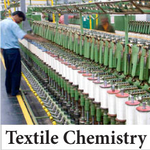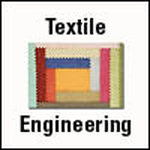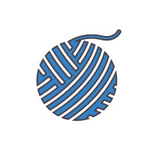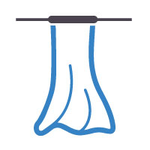
Silk Technology Course Details - Fees, Subjects, Syllabus, Duration, Eligibility, Career Scope
Degrees offered: B.E /B.Tech, B.Sc.(Hons), M.Sc.
What is Silk Technology
What is Silk Technology?
Silk technology is an engineering course that falls under textile engineering. Textile engineering has become a very demanding course of study because of the increase in demand for textile in so many industries.
As the name suggests, the course deals with the production of silk from various sources like silkworm and even artificial chemicals. Silk is one of the oldest and costliest fabrics in the world and to satisfy the never-ending demand for this cloth material, and colleges have come up with courses on silk technology to produce excellent silk engineers in the country.
Eligibility Criteria (UG & PG) of Silk Technology
Silk Technology Eligibility Criteria
Other than entrance exams, students also have to be eligible for applying to B.Tech/ B.E/M.Tech/M.E courses in silk technology. Different colleges may have different eligibility criteria, but more or less the following criteria are followed by institutes and colleges across the country -
Eligibility Criteria for Skill Technology UG Courses:
Students applying for B.E. or B.Tech in silk technology must have completed 10+2 level with not less than 50 per cent in science stream (Physics, Chemistry, and Mathematics) from a recognized board in India.
Students may also have to appear for entrance exams like JEE Main and so on as required by respective colleges and universities.
Eligibility Criteria for Skill Technology PG Courses:
Students applying for M. E or M.Tech in silk technology must hold a UG degree in the related field with not less than 55 per cent from a recognized college/ university in India.
Colleges may also ask students to appear for entrance examinations conducted by examination authorities for different colleges like GATE, KPGCET etc.
Silk Technology Entrance Examination
Apart from the basic eligibility criteria set by different colleges and universities, entrance examinations are also held by these institutes that are providing courses in silk technology across India. Some of the entrance exams that are very famous among students are –
Joint Entrance Examination Main (JEE Main): JEE Main is India’s biggest engineering exams. This exam is conducted all over the country, and every year more than 10 lakh students register for JEE Main. Many engineering colleges and other institutes that offer courses on silk technology accept JEE Main score.
Graduate Aptitude Test in Engineering (GATE): GATE is the biggest engineering examination for postgraduate level. Students who are seeking admissions in various M.Tech or M.E courses on textile/silk technology apply for this examination. GATE witnesses 8 to 10 lakh registrations every year.
Karnataka Common Entrance Test (KCET): Colleges and other institutes that are offering UG and PG level courses in silk technology in Karnataka can take this entrance test. The exam is conducted by Karnataka Examinations Authority in offline mode.
Karnataka Post Graduate Common Entrance Test (Karnataka PGCET): KPCGET is conducted by Karnataka Examinations Authority (KEA) once a year for students seeking admissions in various PG level courses in M.Tech/ M.E./ M.Arch./ MBA etc.
- Consortium of Medical, Engineering and Dental Colleges of Karnataka Under Graduate Entrance Test (COMEDK UGET): COMEDK UGET is an undergraduate level entrance examination for various medical, engineering, and dental courses offered by different colleges and universities in Karnataka. This exam is conducted in an online mode, and the medium of examination is English.
College Predictors VIEW ALL
Scope of Silk Technology in India and Abroad
Scope of Silk Technology in India and Abroad
Silk technology is a course in textile engineering, and this course in India has been witnessing a rise in popularity because of the increased demand in the textile industry in particular and commercial markets in general. Silk is not only one of the most expensive fabrics in the world, but also the oldest.
The demand for silk has never declined. In India, the production of silk has been very constant throughout, but the global demand for this luxurious material is pushing institutions and the government to introduce courses that will produce excellent textile designers who will design and manufacture top quality silk products. These Silk Technology and silk textile engineers are very much in demand, especially in textile companies, export houses, research labs, cloth wear manufacturing units, silk mills. Colleges and universities are also recruiting a high number of these Silk Technology designers for teaching.
Course Subjects
Subjects Included in Silk Technology
Knitting Technology | Computer Concepts and Programming C | Engineering Mathematics | |
Engineering Mechanics | Manufacturing Processes | Textile Fiber | |
Textile Polymer Science | Chemical Processing of Textile | Yarn Manufacturing | Management and Entrepreneurship |
Fashion Design and Garment Manufacturing | Statistical Application | Knitting Technology | Fabric Design |
Mariculture | Sericulture | Silk Reeling Techniques and Technology | Textile Testing |
Apparel Testing and Quality Checking | Total Quality Control and Management | Seminars | Practical Work |
Careers in Silk Technology
Careers in Silk Technology
Silk technology is a very high-demanding and relevant course today. The demand for silk in the textile industry and commercial markets have launched a great number of job positions for B.Tech/ B.E/ M.Tech/ M.E in Silk Technology students.
The career prospects in Silk Technology can make you a silk engineer, a silk designer, a textile manufacturer, an academician, a researcher, a textile quality controller, and others.
Upcoming trends
With the improvement and development in technology, new methods of production and research in Silk technology have been initiated. Silk technologists are trying to develop new sources for producing silk that is not only of high quality but also more durable and easily manufactured.
Silkworms not only require high maintenance but are also not very abundant in nature like cotton.
So, with the help of chemicals and new techniques, a new variety of silks are in the making. More so, the increase in the number of textile industries and research centres have opened job positions to pass out students.
Job Profiles and Top Recruiters
Job Profiles Offered to Silk Technology Graduates
Job Profile | Job Description |
Silk Engineer | As a silk engineer, you have to use your theoretical and practical knowledge in engineering and manufacturing silk. |
Silk Designer | As a silk designer, you have to design and print silk with new innovative ideas. |
Textile Manufacturer | As a textile manufacturer, you have to manufacture textile products for companies and warehouses. |
Textile Quality Controller | As a textile quality controller, you have to check the quality of the silk products and make sure that the products meet all the standards of production. |
Researcher | As a researcher, you have to research on new technologies and techniques for manufacturing and processing silk fibre and yarn. |
Skill Technology Top Recruiters:
Welspun India Limited
Bombay Dyeing
National Handloom Development Corporation Limited
Mysore Silk Factory
National Textile Corporation Limited
Reid & Taylors
Fabindia
Reliance Textiles
Academic Institutions
Research Centres
Average Salary
Silk Technology Top Jobs and Salaries:
Job Profile | Annual Salary |
Silk Engineer | Rs. 3-7 lakh per annum (Approx.) |
Silk Designer | Rs. 2-8 lakh per annum (Approx.) |
Textile Manufacturer | Rs. 3-7 lakh per annum (Approx.) |
Textile Quality Controller | Rs. 3–7 lakh per annum (Approx.) |
Professor | Rs. 3-9 lakh per annum (Approx.) |
Required Skillset for Silk Technology
Students must have good knowledge about the textile industry and how silk is different from other textiles and why it is so important for the economy.
Students must have a research outlook towards their approach to the course. A research-oriented mind will help them in producing high-quality silk.
Students must be well aware of the technologies that are used in the course. Lack of technical knowledge can be very detrimental to the basic understanding of the subject.
Silk technology involves a lot of lab and practical work which means that students must be well-informed in terms of lab ethics and use of different types of equipment.
A business-oriented mind is also very important for pursuing this course as a textile manufacturer or designer. You should know the demands in the commercial markets and what will be more beneficial for the silk industry.
Communication skills will help you in successfully attending all the group discussions, panel discussions, meetings, viva voce, and other events. Great verbal skills can also help in building a more comfortable and understanding workplace.
Course Curriculum for Silk Technology
Silk technology is an engineering course, so it will involve a combination of physics, chemistry and mathematics. The course also involves a lot of topics related to textile designing, silk production and various practical classes.
Different colleges or institutes will have different curriculum and syllabus, but most of the topics remain the same. Let us take a look at some of the topics that are included in the Silk technology course in India.
Frequently Asked Questions (FAQs)
Question: Can a person from a Commerce background appear for COMEDK for B.Tech in Silk Technology?
Answer :
No, Silk Technology courses require a Science background, preferably Physics, Chemistry and Maths as the main subjects.
Question: What is the new change in the syllabus of GATE 2020?
Answer :
Environmental Science and Engineering and Humanities and Social Science have been added to the new syllabus of GATE 2020 and onwards with the paper codes of XS and XH respectively. This has increased the total number of subjects from 25 to 27.
Question: What are some of the colleges for B.Tech or B.E. in silk technology?
Answer :
Visvesvaraya Technological University (VTU), Sri Krishnarajendra Silver Jubilee Technological Institute, Dr A.P.J. Abdul Kalam Technical University, and Bihar Institute of Silk and Textile are some of the colleges/ universities where UG level silk technology courses are offered.
Questions related to Silk Technology
What are College in covai offering seats for Silk technology? And what is the required cut off for each College?
Hello,
Colleges offering the courses regarding Silk Technology are provided as:
- PSG College of Technology - PSGCT
- Kumaraguru College of Technology - KCT
- Park College of Engineering and Technology - PCET
- AIT Karaikudi - Alagappa College of Technology
- Indian Institute Of Handloom Technology
- K.S.Rangasamy College of Technology (KSRCT)
- SSM College of Engineering
Hope this helps!




.jpg)

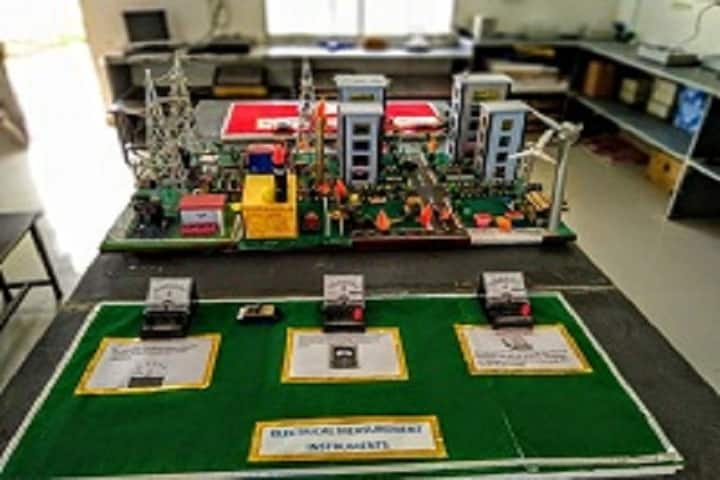
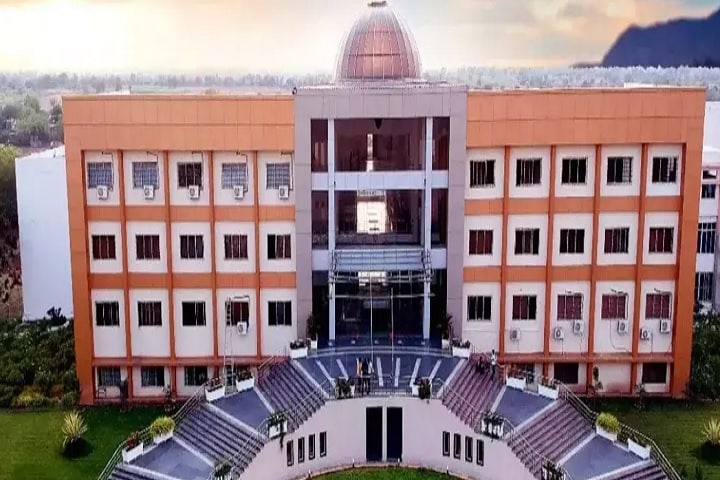

 Answer later
Answer later




